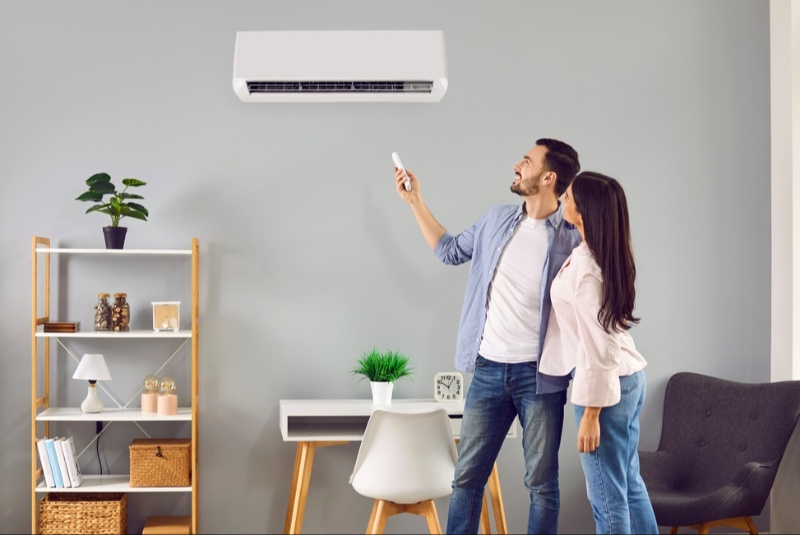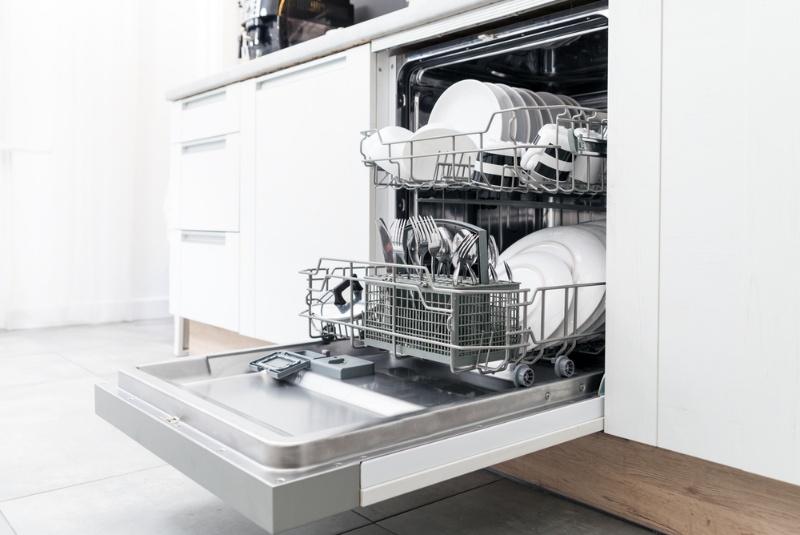With rising temperatures and increasing energy costs, investing in a high-efficiency air conditioner is a smart decision for both your comfort and your wallet. High-efficiency air conditioners not only cool your home effectively but also help reduce energy consumption and lower utility bills. This comprehensive guide provides essential tips for selecting the best high-efficiency air conditioner, ensuring you make an informed and beneficial purchase.
Understanding SEER Ratings
The Seasonal Energy Efficiency Ratio (SEER) rating measures the efficiency of an air conditioner. The higher the SEER rating, the more efficient the unit. Modern air conditioners typically have SEER ratings ranging from 13 to 26. Investing in a unit with a high SEER rating can significantly reduce your energy consumption and operating costs. Understanding SEER ratings ensures you choose an air conditioner that offers optimal efficiency and performance, saving you money in the long run.
Considering Energy Star Certification
Energy Star-certified air conditioners meet strict energy efficiency guidelines set by the U.S. Environmental Protection Agency. These units use less energy, save money on utility bills, and reduce greenhouse gas emissions. When shopping for a high-efficiency air conditioner, look for the Energy Star label. This certification ensures you are investing in a product that is both energy-efficient and environmentally friendly. Considering Energy Star certification ensures your air conditioner meets high standards for energy savings and performance.
Evaluating Cooling Capacity
The cooling capacity of an air conditioner is measured in British Thermal Units (BTUs) and indicates how much heat the unit can remove from a room per hour. Choosing the right cooling capacity is crucial for efficiency and comfort. A unit with too little capacity will struggle to cool your space, while one with too much capacity will cycle on and off frequently, wasting energy. Use a BTU calculator or consult with a professional to determine the appropriate capacity for your room size. Evaluating cooling capacity ensures your air conditioner operates efficiently and maintains a comfortable indoor environment.
Assessing the Type of Air Conditioner
There are several types of air conditioners to consider, including central air systems, window units, portable units, and ductless mini-split systems. Central air systems are ideal for cooling an entire home but require ductwork. Window units are cost-effective for single rooms but can be less efficient. Portable units offer flexibility but may be less powerful. Ductless mini-splits provide zoned cooling with high efficiency but come at a higher initial cost. Assessing the type of air conditioner ensures you choose a system that fits your needs and budget.
Considering Inverter Technology
Inverter technology in air conditioners allows the compressor to adjust its speed based on the cooling demand, providing more precise temperature control and improved energy efficiency. Unlike traditional units that cycle on and off, inverter air conditioners run continuously at variable speeds, reducing energy consumption and wear on the system. Considering inverter technology ensures you invest in an air conditioner that offers superior efficiency, quieter operation, and longer lifespan.
Evaluating Noise Levels
The noise level of an air conditioner can impact your comfort, especially in bedrooms and living areas. Air conditioner noise levels are measured in decibels (dB). Look for units with lower dB ratings for quieter operation. High-efficiency models often incorporate sound-dampening technology to reduce noise. Evaluating noise levels ensures you choose an air conditioner that provides a peaceful indoor environment without disruptive sounds.

Exploring Smart Features and Controls
Modern air conditioners come with smart features and controls that enhance convenience and efficiency. Look for units with Wi-Fi connectivity, allowing you to control the temperature remotely via a smartphone app. Programmable thermostats and timers enable you to set cooling schedules, optimizing energy use. Some models offer voice control compatibility with smart home systems like Amazon Alexa and Google Assistant. Exploring smart features and controls ensures you can manage your air conditioning system easily and efficiently, maximizing comfort and energy savings.
Checking Installation Requirements
Proper installation is crucial for the performance and efficiency of your air conditioner. Some units, like window and portable air conditioners, are easier to install and may be suitable for DIY installation. Central air systems and ductless mini-splits typically require professional installation to ensure optimal performance and warranty compliance. Checking installation requirements ensures your air conditioner is installed correctly, providing reliable operation and maximizing its efficiency.
Considering Maintenance Needs
Regular maintenance is essential to keep your air conditioner running efficiently and prolong its lifespan. Look for units with easy-to-clean filters and accessible components for routine maintenance. Some high-efficiency models feature self-cleaning functions that reduce the buildup of dust and debris. Schedule annual professional inspections to check for potential issues and ensure optimal performance. Considering maintenance needs ensures you can keep your air conditioner in top condition, preventing costly repairs and maintaining energy efficiency.
Comparing Costs and Financing Options
High-efficiency air conditioners can have a higher initial cost compared to standard models, but they offer long-term savings on energy bills. When comparing costs, consider the total cost of ownership, including purchase price, installation, maintenance, and operating costs. Some utility companies and government programs offer rebates or incentives for purchasing energy-efficient models. Financing options, such as manufacturer financing or low-interest loans, can make the upfront investment more manageable. Comparing costs and financing options ensures you make a financially sound decision that balances initial expense with long-term savings.
Reading Reviews and Seeking Recommendations
Customer reviews and recommendations can provide valuable insights into the performance, reliability, and satisfaction of different air conditioner models. Look for detailed reviews that discuss energy efficiency, noise levels, ease of use, and overall satisfaction. Professional reviews and consumer reports offer in-depth analysis and comparisons. Additionally, seek recommendations from friends, family, or HVAC professionals who have experience with high-efficiency air conditioners. Reading reviews and seeking recommendations ensures you make an informed decision based on real-world experiences and expert opinions.
Evaluating Warranty and Customer Support
A good warranty and reliable customer support are important factors when purchasing a high-efficiency air conditioner. Look for units with comprehensive warranties that cover parts and labor for several years. Check the manufacturer’s reputation for customer service and support. Having a solid warranty and access to helpful customer support can provide peace of mind and protection against unexpected issues. Evaluating warranty and customer support ensures you have the backing and resources needed for any future concerns.
Selecting a high-efficiency air conditioner involves understanding SEER ratings, considering Energy Star certification, and evaluating cooling capacity and type. Inverter technology, noise levels, and smart features further enhance your choice. Checking installation requirements, maintenance needs, and comparing costs and financing options help ensure a balanced decision. Reading reviews, seeking recommendations, and evaluating warranty and customer support provide additional assurance. Use this guide to navigate the market confidently and choose the best high-efficiency air conditioner for your home, ensuring comfort, energy savings, and long-term satisfaction.




